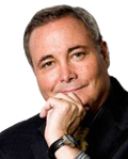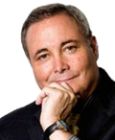
Career
Our Thoughts Can Work For Us or Against Us
The power of positive intentions
Posted June 29, 2011
So many individuals I work with in my practice use the terms "would, should and could."
For example, "I would stop drinking...," I should stop drinking...," "I could stop drinking..."
I suppose many people do say these words and more importantly buy into them including myself at times - but when I do I try to correct my thinking. I try to correct my thinking because there is a certain passivity involved in these "statements of past tense."
We need to progress to the present and correct our thinking by practicing, "will, can, and shall."
While this may seem like a minor point, it is actually quite major.
Psychologists are often accused of complicated hypotheses and theories - but as I have said before, the first rule of psychology is parsimony - economy of solution if you will.
I want all of my readers to practice "will, can, and shall." Make these words your daily mantra and see the power of your intentions become part of your solution to "being" positive - as the saying goes, "practice makes perfect!"
You see, after awhile these empowering thoughts will become automatic - why there are even those who have begun to provide evidence utilizing MRI and PET Scans (refer to the literature on neuroplasticity) that this type of thinking can create new neural pathways that can change one's emotional state (e.g., improve depression).
Twelve step programs have always focused on positive "now" thinking: "look back but don't stare,"
"one day at a time," "move a muscle and change a thought," "easy does it, "don't stare in the rearview mirror, "live in the now," etc.
My mother always had a saying: "for the same cost you can be positive young man!" It is amazing, the older I get, the smarter my mother becomes!

